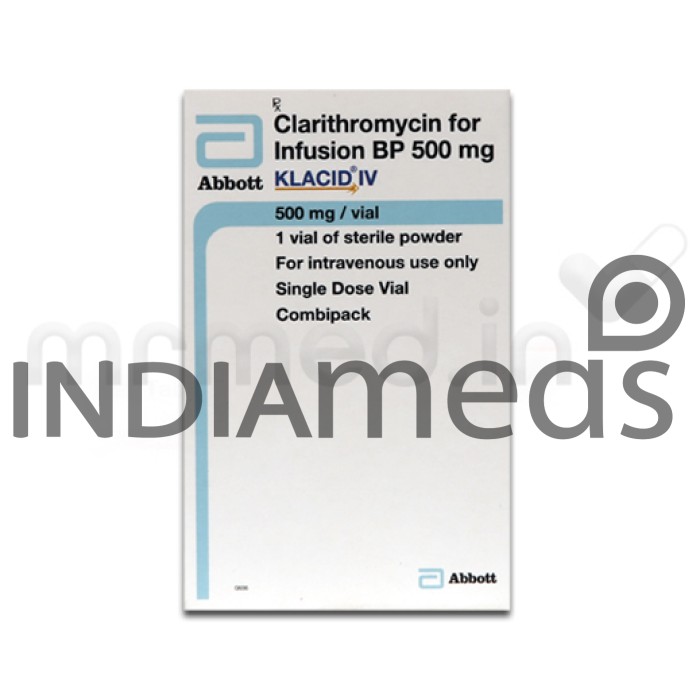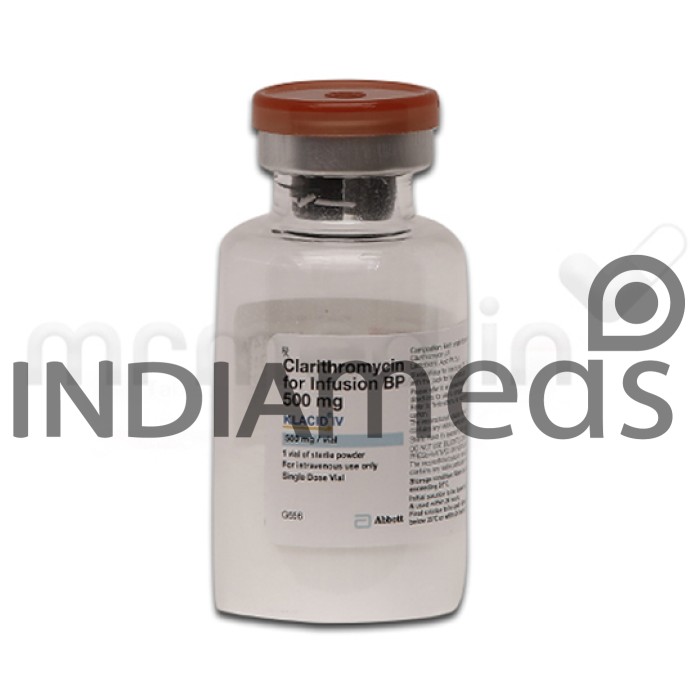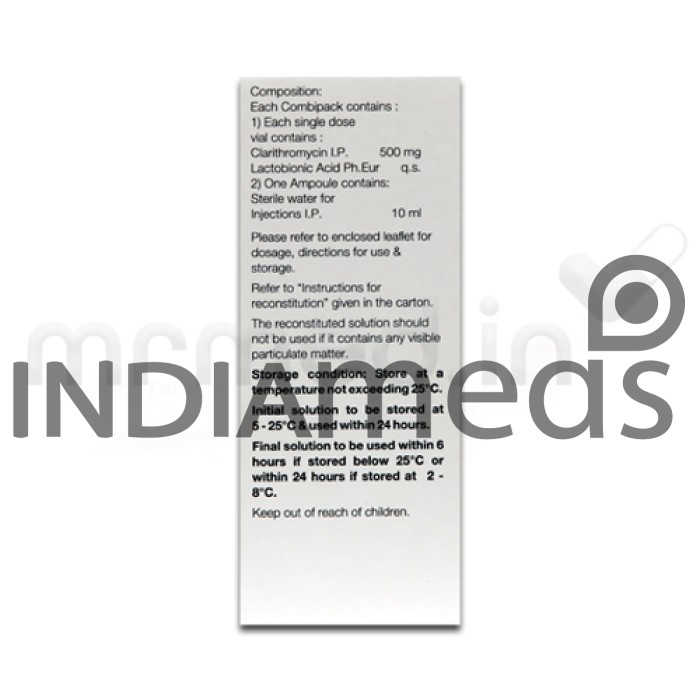Klacid 500mg injection is an antibiotic medication in the macrolide class, containing the active ingredient. This drug treats various bacterial infections, including skin infections, respiratory tract infections, and certain types of stomach ulcers caused by a bacteria called H. pylori, which is related to peptic ulcer disease.
Suppose you have a history of jaundice or liver problems that occurred while taking Klacid 500mg injection or other macrolide antibiotics in the past. In that case, informing your healthcare provider about this medical history is important. Individuals who have previously experienced those conditions may have an increased risk of developing further liver problems or experiencing a recurrence of jaundice if exposed to the drug again. Your doctor will consider this information when prescribing medications and may recommend alternative antibiotics less likely to cause liver problems or choose a different approach to manage your condition.
This drug can increase the chance of side effects that affect the heart, particularly by prolonging the QT interval. Prolongation of the QT interval leads to a serious heart rhythm abnormality called torsades de pointes. Before taking Klacid 500mg injection, it is important to be aware of the side effects and discuss them with your healthcare provider. It is advised to avoid using the drug if you are mainly allergic to it or its ingredients.
Therapeutic Effects of Klacid 500mg Injection
Pregnancy
Your doctor shall prescribe Klacid 500mg injection only if necessary; the benefits outweigh the risks.
Breast Feeding
Taking Klacid 500mg injection during breastfeeding is unsafe because it tends to get excreted in human milk.
Lungs
Klacid 500mg injection is safe to use and can be prescribed for patients with lung problems. Consult your physician if you have any lung diseases before starting the treatment.
Liver
Klacid 500mg injection should be cautiously administered in patients with severe liver diseases. Dose adjustments are necessary for severe liver failure. Consult your physician if you have liver problems before initiating the therapy.
Alcohol
It is unknown whether consuming alcohol while taking Klacid 500mg injection is safe. Please speak with your physician.
Driving
Driving vehicles or operating heavy machinery is unsafe after taking Klacid 500mg injection. It may cause dizziness and impair concentration.
Common
- Injection site reactions (pain, tenderness)
- Increased sweating
- Alterations in the sense of taste
- Sleeping troubles
- Widening of blood vessels
- Headache
- Nausea, vomiting
- Stomach pain, diarrhea
Klacid 500mg injection works by inhibiting the growth and spread of bacteria. It does this by interfering with their ability to produce proteins essential for survival.
Klacid 500mg injection is commonly used to treat respiratory tract infections such as bronchitis, pneumonia, and sinusitis. It is also effective against skin and soft tissue infections and certain bacterial stomach ulcers caused by Helicobacter pylori.
No, Klacid 500mg injection is only effective against bacterial infections. It has no activity against viral infections, such as the common cold or influenza.
Klacid 500mg injection may interact with other medications, including certain blood thinners, antifungal drugs, HIV medications, and cholesterol-lowering drugs. Before initiating the treatment, you must inform your physician about all your medications, including prescription medications, over-the-counter drugs, herbal supplements, and vitamins.
Klacid 500mg injection is considered safe during pregnancy only if necessary, and the benefits outweigh the risks. It can pass into breast milk, so caution should be exercised when using this drug while breastfeeding.
Molecule name: Clarithromycin | Therapeutic class: Antibiotics |
Pharmacological class: Macrolides | Indications: 1. Respiratory infections 2. Skin and soft tissue infections |







